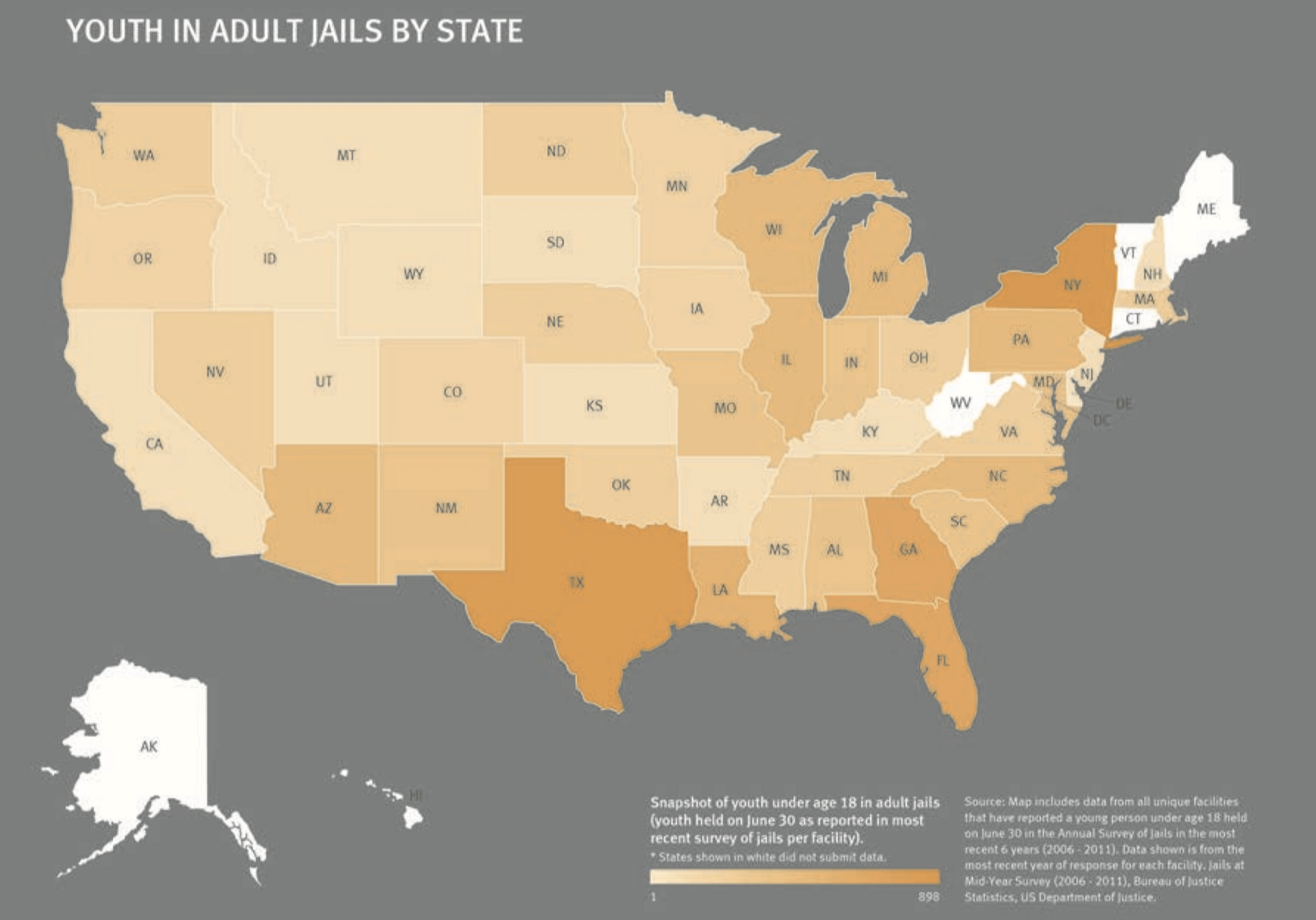Tennessee Sheriff: Solitary Confinement for 16 year-old Girl is No Different Than a ‘Private Room’
A 16-year-old Memphis girl charged with first-degree murder in the killing of a teen boy is being held in pretrial isolation at the Tennessee Prison for Women in Nashville. The Shelby County District Attorney’s office charged her as an adult in the April 3, 2017 shooting death of 17-year-old Deago Brown. She was just 15 […]

A 16-year-old Memphis girl charged with first-degree murder in the killing of a teen boy is being held in pretrial isolation at the Tennessee Prison for Women in Nashville.
The Shelby County District Attorney’s office charged her as an adult in the April 3, 2017 shooting death of 17-year-old Deago Brown. She was just 15 when she was arrested and then transferred to the adult women’s prison.

A spokesperson for Shelby County Sheriff Bill Oldham’s office said the county sent her to the prison, which is 200 miles away from her home and family, because local facilities don’t have a secure place for her.
As the only inmate there under 18 years of age, however, she has spent the last four months alone inside of a cell the size of a walk-in closet, according to attorney Josh Spickler, the director of Just City, a criminal justice reform advocacy group. She has no contact with other prisoners. She is allowed 30 minutes three times a week to shower, with her hands and feet shackled each time she leaves her cell.
“A developing brain cannot tolerate this treatment,” Spickler said in a written statement.
“If the Sheriff lacks the facilities and staff to detain girls, he must follow the law and find the nearest sufficient jail,” he wrote. Spickler also noted that a youth facility near Nashville in Davidson County has offered to hold the young woman and provide her supportive services and safety.
The young woman has already spent roughly 131 days in solitary confinement, 101 days longer than the 30-day limit contained in the Army Field Manual for the “separation” of terrorism detainees, which is considered a “restricted” interrogation technique.
Yet in an interview with the Commercial Appeal, Shelby County Sheriff’s Office spokesman Earle Farrell compared her conditions of confinement to a “private room.” Farrell’s claim about solitary confinement is not supported by data.
The devastating and lasting psychiatric effects of solitary confinement have been extensively documented. Solitary confinement is harmful to the mental health of inmates because it restricts social contact, which is a psychological stimulus that humans require to remain healthy and functioning. Prolonged isolation causes anxiety, panic, hallucinations, paranoia, insomnia, aggression, depression, and an increased risk of suicide, especially for people with pre-existing mental health conditions.
For juveniles, whose brains are still developing, solitary confinement is even more brutal, its effects even more enduring.
Compounding the psychiatric effects of isolation, adolescents in solitary confinement “are frequently denied access to treatment, services, and programming adequate to meet their medical, psychological, developmental, and rehabilitative needs,” according to a 2011 report by Human Rights Watch and the American Civil Liberties Union.
Department of Justice research found that more than half the children in juvenile facilities who committed suicide while detained were in isolated cells.
The United Nations’ Convention on the Rights of the Child and the Convention Against Torture and Other Cruel, Inhuman, or Degrading Treatment or Punishment both prohibit solitary confinement for juveniles. And several local governments have also eliminated solitary confinement for youth detained in adult correctional facilities.
Speaking earlier this month in support of an American Bar Association measure urging state legislatures to curtail the use of solitary confinement, Sixth Circuit Court of Appeals Judge Bernice Donald pointed to the case of Kalief Browder, who was sent to Rikers Island at age 16 under suspicion of stealing a backpack and then spent three years waiting for a trial that never occurred, with two of those years spent in isolation. He attempted suicide several times while in solitary confinement, and tried again in 2013, six months after he left Rikers Island. In 2015, at the age of 22, Browder hung himself.
“Shelby County’s failure to provide a safe, age-appropriate detention setting for a 15-year-old girl is a serious matter,” Spickler told The Appeal. “To dismiss it and compare isolation like this to a ‘private room’ is appalling. The conditions of this girl’s detention are unacceptable, and everything we know about teenage brain development tells us we are doing irreparable harm.”
